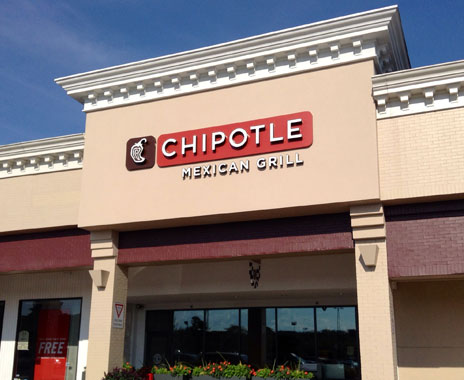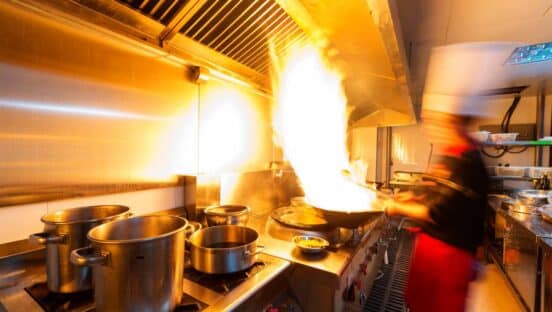Anyone who follows foodservice industry news may well have had their fill of stories about ill Chipotle customers. Operators across the country took note in 2015 when Chipotle’s reputation and stock prices plummeted amid back-to-back outbreaks of E. coli and norovirus. Chains and independent restaurants alike scrambled to double-check their washing procedures, communicate with their supply chain partners, and develop systems for monitoring food storage and cooking temps.
Chipotle’s most recent brush with sickened customers in Sterling, Virginia, however, is different. Their most recent norovirus outbreak came not from unwashed cilantro or undercooked steak, but from a sick employee who came to work despite having a contagious illness. The larger issue at play in this case is not one of process, but of culture. Chipotle is at fault for failing to create a culture in which employees recognize the potential impacts of working while sick and would choose to stay home from work instead of coming in to cook rice and serve guests. Chipotle’s stock dropped to its lowest level in more than four years Tuesday as it hit a low of $304, the lowest since February 6, 2013.
To think that line workers are solely at fault is misguided. Managers must understand the importance of such policies and demonstrate a commitment to following corporate best practices. According to CNBC, Chipotle offers employees paid sick leave, but some workers were forced by their bosses to work while they were ill. Chipotle has vowed that employees will undergo another round of “comprehensive communication and training” to make sure they understand how to prevent another similar outbreak. What the chain needs at this juncture, however, is not merely to create another training program, but to work hard on fostering a culture of food safety.
It is one thing to train employees on best food safety practices, but entirely another to make them care deeply about food safety to the point that each employee refuses to allow themselves or others to violate food safety best practices. Food safety culture starts at the very top of the organization, where executives must make all positioning, expansion and sourcing decisions with food safety top-of-mind. This culture needs to carry down to managers who are responsible for knowing and adhering to corporate policies, and who have the ability to lead by example to create a food-safe culture within each store or region. The food safety culture itself must be infectious enough to inspire all line and service employees to make appropriate decisions about such mundane tasks such as closing walk-in doors, washing hands, switching cutting boards, or staying home from work when appropriate.
To take the issue to even more of a macro level, there are industry-wide factors that are at play in this particular food safety case. The restaurant industry in general, and chain segment specifically, is notoriously understaffed. Further compounding that problem is the cultural philosophy that many chefs and back-of-house staff possess, that if an employee misses a shift, it’s not just their boss or their company that they are affecting, but the men and women with whom they share the line. At its core, this deep-seated kitchen camaraderie is a great thing, but it does lead to problems.
The solution is better staffing practices. Restaurants need to hire a few extra part-time or on-call staff that are available to fill in if and when scheduled staffers call out sick. Every restaurant wants to run lean and avoid paying another two employees, but that just may be the key to convincing kitchen or service staff that they should never come in if they’re feeling sick. What’s cheaper, putting in slip-resistant floor mats or pay workman’s comp for 10 years?
In higher end restaurants, food safety can be somewhat of a secondary concern. Many experienced cooks think of food safety as “second-nature” and it doesn’t get talked about as much as it might in chain restaurants. However, managers must ensure that food safety is an issue that is discussed openly and enforced appropriately. At low-scale restaurants, food safety procedures must be enforced by the book. High turnover at chains leads to poorly trained employees or employees that are simply not paid enough to care. The chain restaurant culture must focus as obsessively on safety as they do on their spreadsheets. Managers are often more worried about the numbers than the quality of the food, quality of the service and creating a safe, quality experience for guests. However, if restaurant owners and executives can create a culture of food safety, customer experience wins and sales will reflect it.













